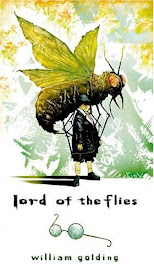1. "The Widow Douglas, she took me for her son, and allowed she would sivilize me; but it was rough living in the house all the time, considering how dismal regular and decent the window was in all her ways; and so when I couldn't stand it no longer, I lit out. I got into my old rags, and my sugar-hogshead again, and was free and satisfied." (page 9)
- The lack of discipline in Huckleberry's early education, made him an outsider of civilization. Although he was adopted as the widow's son, he was still, in nature, a free spirit: "All I [he] wanted was to go somewhere; all I [he] wanted was a change, I [he] warn't particular" (10). Unlike those well-educated children, Huckleberry wants adventures. However, little does he know, those adventures are not only exciting and playful experiences, but also developments of his personality, moral, and view of life.
- From here we can see that Huckleberry is a skeptic of social doctrines. Although he is open to learning things he does not know, he never accept new ideas without thinking or testing them. People may view him as a ruleless rebel; however, he is, indeed, a liberal and thoughtful young boy who has the courage to question those infallible religious ideas, rituals, and manners. He is destined to make a difference.
1. ornery - [adj.]
1> ugly and unpleasant in disposition or temper
2> stubborn
3> low or vile
4> inferior or common
Ex. "I was so ignorant and so kind of low-down and ornery." (20)
2. ambuscade
[n.] an ambush
[v.] to attack from a concealed position; ambush
Ex. "They didn't have only a guard of four hundred soldiers, and so we would lay in ambuscade, as he called it, and kill the lot and scoop the things." (21)












0 comments:
Post a Comment